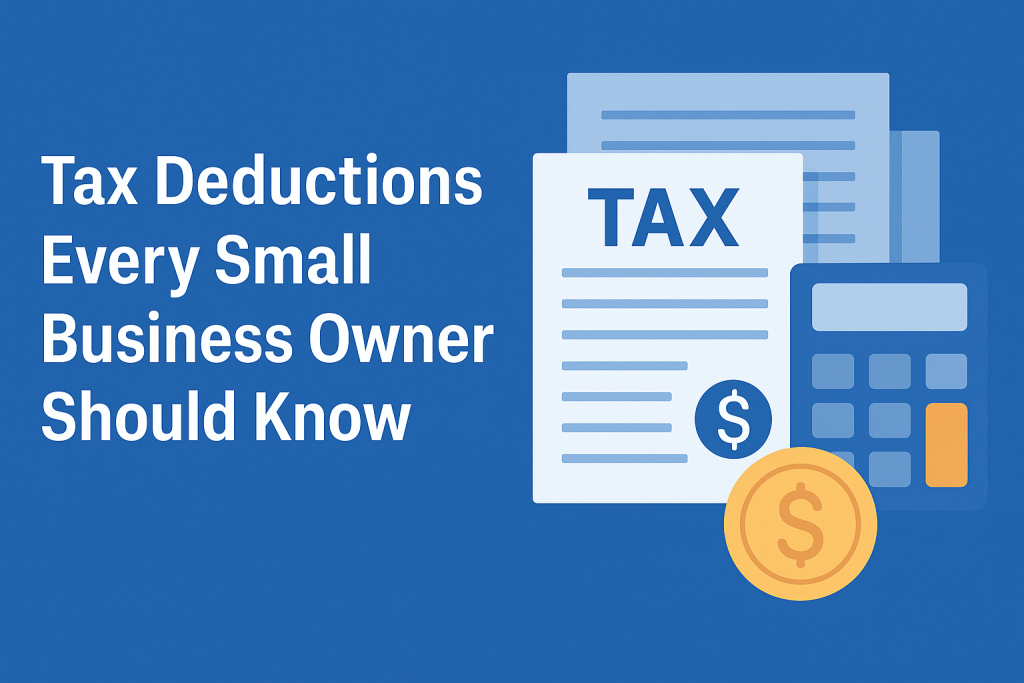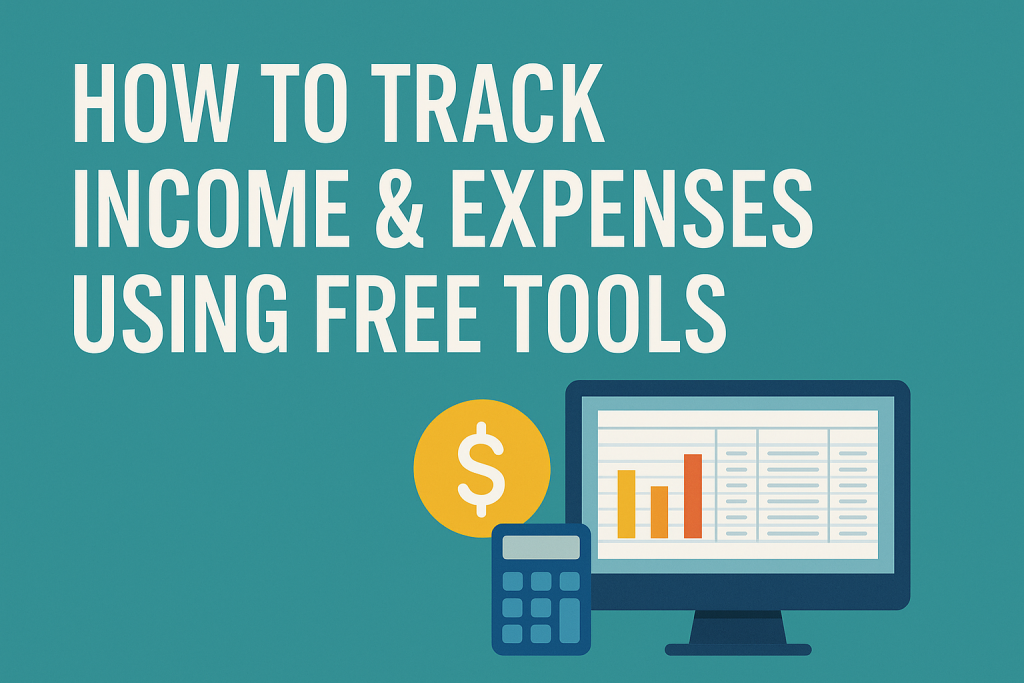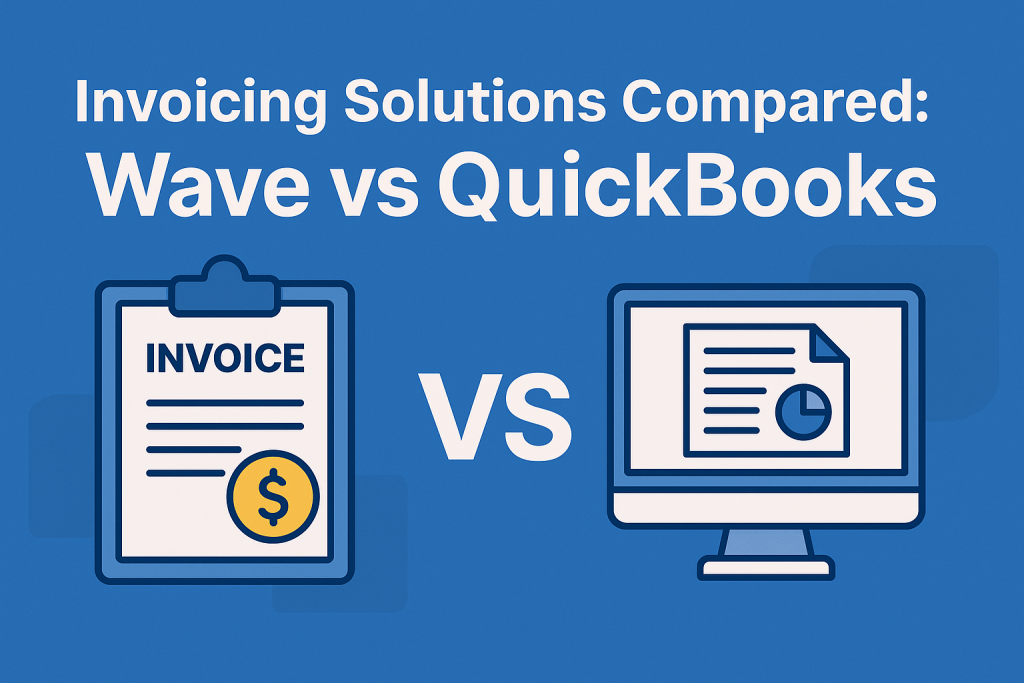Taxes can feel overwhelming for small business owners—but the right deductions can significantly lower your tax bill and help you keep more of what you earn.
The IRS allows a variety of expenses to be deducted from your business income, reducing your taxable income and potentially saving you thousands of dollars each year. But many entrepreneurs miss out simply because they don’t know what qualifies.
In this article, we’ll break down the most common and valuable tax deductions every small business owner should know, so you can prepare smarter and maximize your savings.
Why Tax Deductions Matter for Small Businesses
Tax deductions reduce your taxable income, which means you owe less in federal, state, and sometimes local taxes. They can be the difference between a profitable year and a break-even one.
Benefits of Tracking and Claiming Deductions
- Lower your total tax bill
- Improve year-end profitability
- Justify business decisions and investments
- Free up more cash for growth
Claiming legitimate deductions is not a loophole—it’s smart business.
1. Home Office Deduction
If you work from home—even part-time—you may be eligible to deduct a portion of your housing costs.
What Qualifies
- A dedicated space used exclusively for business
- Can be a room or a portion of a room
- Must be your primary place of business
What You Can Deduct
- Rent or mortgage interest
- Utilities and internet
- Home repairs and insurance (percentage-based)
Use the simplified IRS method ($5 per square foot up to 300 sq ft) or actual expenses.
2. Business Use of Vehicle
Using your car for business? You can deduct vehicle-related expenses proportionally to business use.
Deduction Methods
- Standard mileage rate (67 cents/mile for 2024)
- Actual expenses (fuel, maintenance, insurance, depreciation)
Keep detailed mileage logs to support your claim.
3. Office Supplies and Equipment
From pens and notebooks to computers and printers—if it helps you run your business, it likely qualifies.
Deductible Items
- Paper, ink, software
- Office furniture and tech
- Subscriptions to digital tools or cloud storage
Large items may need to be depreciated over time.
4. Marketing and Advertising
Anything you spend to promote your business is generally deductible.
Examples Include
- Social media ads
- Business cards and flyers
- Website hosting and design fees
- Email marketing platforms
Even sponsoring local events or donating branded merchandise can count.
5. Business Meals
You can deduct 50% of meal costs when you’re dining with clients, partners, or during travel.
Rules to Remember
- Must be directly related to business
- Keep receipts and note who you met with and the purpose
- Lavish or extravagant meals don’t qualify
Coffee meetings count too—if they have a business purpose.
6. Professional Services
If you hire an accountant, consultant, or legal advisor, those fees are tax-deductible.
Common Deductible Services
- Bookkeeping or payroll service
- Business coaching
- Legal contract reviews
- Tax prep and financial planning
These services support operations—and reduce your financial stress.
7. Insurance Premiums
Many types of business insurance are deductible as operating expenses.
Eligible Types Include
- General liability insurance
- Professional liability (E&O)
- Cybersecurity or data breach insurance
- Workers’ compensation insurance
Even a portion of your health insurance may qualify if you’re self-employed.
8. Travel Expenses
If you travel for business, those costs are often fully deductible.
Deductible Travel Costs
- Flights and lodging
- Car rentals or ride-shares
- Meals (50%) and tips
- Conference fees or event passes
Travel must have a clear business purpose. Personal vacations don’t count—even if you work during them.
Final Thoughts
Navigating taxes doesn’t have to be scary. Understanding the most common tax deductions every small business owner should know helps you reduce your liability, stay compliant, and reinvest in your business.
Start by organizing receipts, tracking expenses, and consulting with a qualified tax professional. With the right knowledge and preparation, you’ll make tax season work for you—not against you.
Get Prepared for Tax Time
- 📥 Download our Free Tax Deduction Checklist
- 📊 Explore our guide to the best accounting software for small businesses
- 💬 Share your biggest tax-time question in the comments!


